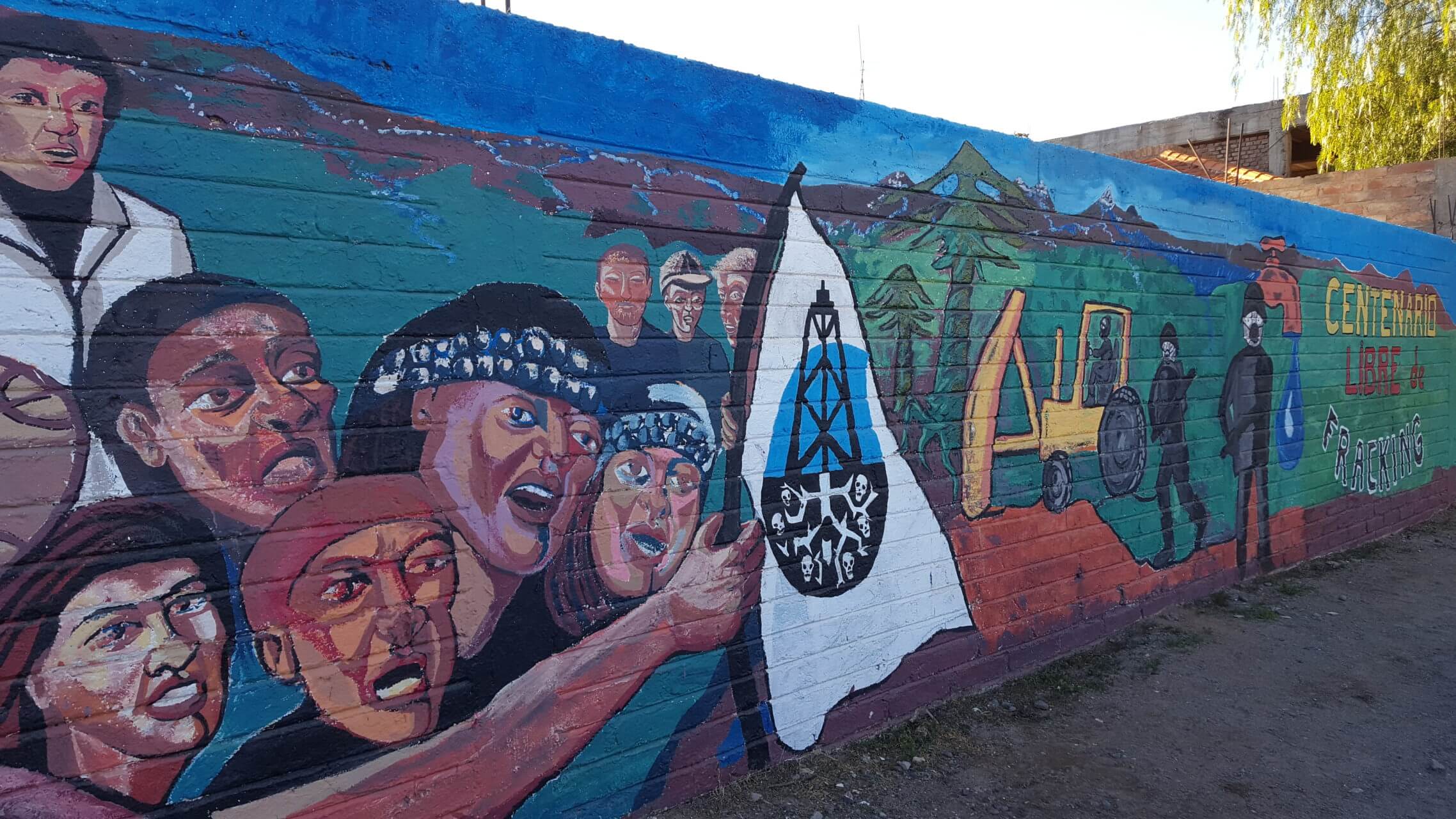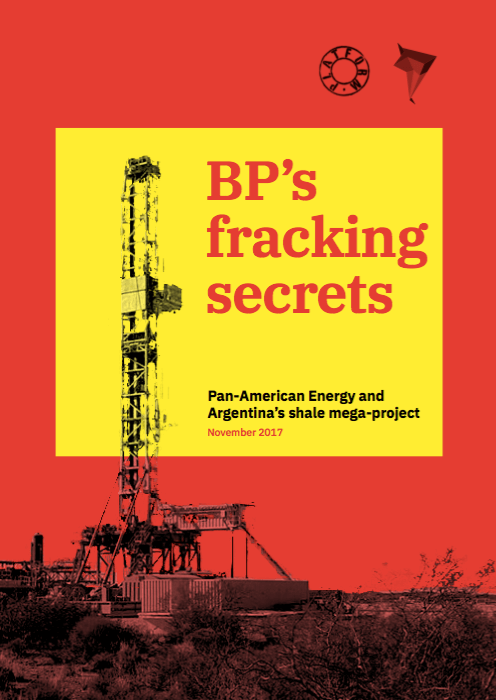We’re campaigning to prevent a £1 billion UK government credit line from supporting fracking in Argentina – this primer explains why.
- Click here to download this flyer as a pdf.
- Go to platformlondon.org/ukef/ to tell UKEF to stop backing fossil fuels.
🌍🔥😡 £1 billion in taxpayer finance – for what?! 😡🔥🌍
The UK government pledges billions of pounds every year in finance for UK businesses abroad through UK Export Finance (UKEF). In 2017 UKEF announced a new £1 billion credit line for UK businesses working in Argentina, with then minister Greg Hands stressing that “the UK’s expertise in areas like infrastructure, green energy and healthcare” were the targets for support.
But who’s invited to pitch for this money? Oil & gas firms, of course.
Treasurer Philip Hammond invited BP and Shell to a meeting in Buenos Aires to promote the government credit line. No renewables firms were at this meeting.
The £1 billion finance has not been fully allocated yet. We have a window of opportunity to make sure they do not go to dangerous fossil fuels and fracking.

The threat of fracking in Patagonia
BP and Shell are poised to begin fracking on a massive scale in the highlands of Patagonia.
Argentina’s reserves of shale gas are estimated at 47.9 giga tons. This could be a whopping 15 percent of the remaining global carbon budget (the limit past which we must not burn fossil fuels to have a 50% chance of avoiding 2*C warming).
Much of the shale gas lies under the lands of the Indigenous Mapuche nation. Communities are protesting the violation of their right to Free, Prior, Informed Consent to drilling on their land, and some are blockading drilling rigs on their land. Fruit farmers’ associations have denounced pollution affecting their crops and livelihoods.
Fracking for shale gas in Patagonia also means a host of other new infrastructure: silica mines, waste sites, pipelines, LNG terminals, raising concerns from neighbourhoods across Argentina.

What are UK companies doing there?
BP (via its arm Pan American Energy Group) is the largest private oil company working in Argentina,responsible for a quarter of the country’s crude oil output. Pan American operates five licences in the Vaca Muerta field and holds a non-operating interest in two more blocks.
- Pan-American’s flagship shale gas licence Lindero Atravesado overlaps with lake Mari Menuco, a freshwater reservoir providing potable water to the provincial capital Neuquen (c. 620,000 inhabitants), and Vista Alegre, a municipality that has passed a local ban on fracking, currently contested by the provincial government in court.
Shell operates four licence blocks in the Vaca Muerta province, including:
- Sierras Blancas, where it also runs a hydrocarbons treatment plant, and Cruz de Lorena, both directly affecting the agricultural municipality San Patricio del Chañar as well as a community of farming Creole families who don’t have legal access to indigenous rights protection.
- Águila Mora, where the fracking wells are directly next to the borders of a Natural Protected Area Auca Mahuida.
It also participates in 3 more blocks including Bajada de Añelo (affecting the land of Indigenous mapuche community Campo Maripe that has protested the lack of prior informed consent).
“Clean gas”?
Big Oil companies and G20 governments alike are promoting fossil gas as a solution to climate change: a “bridge fuel” that can replace the more polluting coal on the way to a low-carbon economy. But this is a myth. The world’s carbon budget does not have room for any new fossil fuels, including gas. When companies invest in new gas infrastructure, they do so with the expectation of extracting gas 40 to 50 years down the line – when the world needs to have stopped burning fossil fuels altogether. And viable renewable alternatives exist – but don’t have the high-profile political support that fossil gas does.
What now?
We call on UKEF to stop awarding new funding for fossil fuel projects, beginning with the new Argentina credit line. The funds have not been allocated yet – now is the time to make sure they do not go to fracking Patagonia.
BP does not carry out fracking in the UK for fear of “the wrong kind of attention”. We need to make sure BP, alongside other Big Oil companies, appreciates that fracking in Patagonia carries just as big of a reputational risk.
Go to platformlondon.org/ukef/ to tell UKEF to stop backing fossil fuels.
Follow:
- @PlatformLondon
- @DivestLondon
- @argsolidarityca
![]() This publication was produced with the financial support of the European Union. Its contents are the sole responsibility of Platform and do not necessarily reflect the views of the European Union.
This publication was produced with the financial support of the European Union. Its contents are the sole responsibility of Platform and do not necessarily reflect the views of the European Union.